Cape Town Stadium, also known as Green Point Stadium or DHL Stadium, is a multi-purpose stadium located in Cape Town. It is situated in the suburb of Green Point and is a notable landmark in the city. The stadium has hosted several international events, including the 2010 FIFA World Cup, and has a seating capacity of 55,000. Let’s jump into this major tourist attraction that makes Cape Town the best place for shows and sports events.
Table of Contents
All About Cape Town Stadium 🏟️
The Cape Town Stadium was built for the 2010 FIFA World Cup, which was hosted by South Africa. It replaced the old Green Point Stadium, which was demolished in 2007. The construction of the stadium began in March 2007 and was completed in December 2009, just in time for the 2010 World Cup. Following this years later this stadium was bought by DHL and was transformed into the DHL stadium we have come to love today!
Stadium Design ✒️


The Cape Town Stadium was designed by an architecture firm called GMP Architekten. The design of the stadium was inspired by the shape of an African bowl. The stadium has a distinctive feature of a transparent roof that covers the entire seating area. The roof is made of Teflon-coated fibreglass and is supported by a series of cables. The roof was designed to protect the spectators from the sun and rain while still allowing natural light to enter the stadium.
The stadium is designed to be environmentally sustainable. The stadium was built using environmentally friendly materials, and the roof of the stadium was designed to collect rainwater, which is then used to irrigate the playing field. The stadium also has a waste management system, which separates and recycles waste produced during events. It is also equipped with state-of-the-art facilities, including restaurants, VIP lounges, and a retail section.
Events Hosted at DHL Stadium 🎤
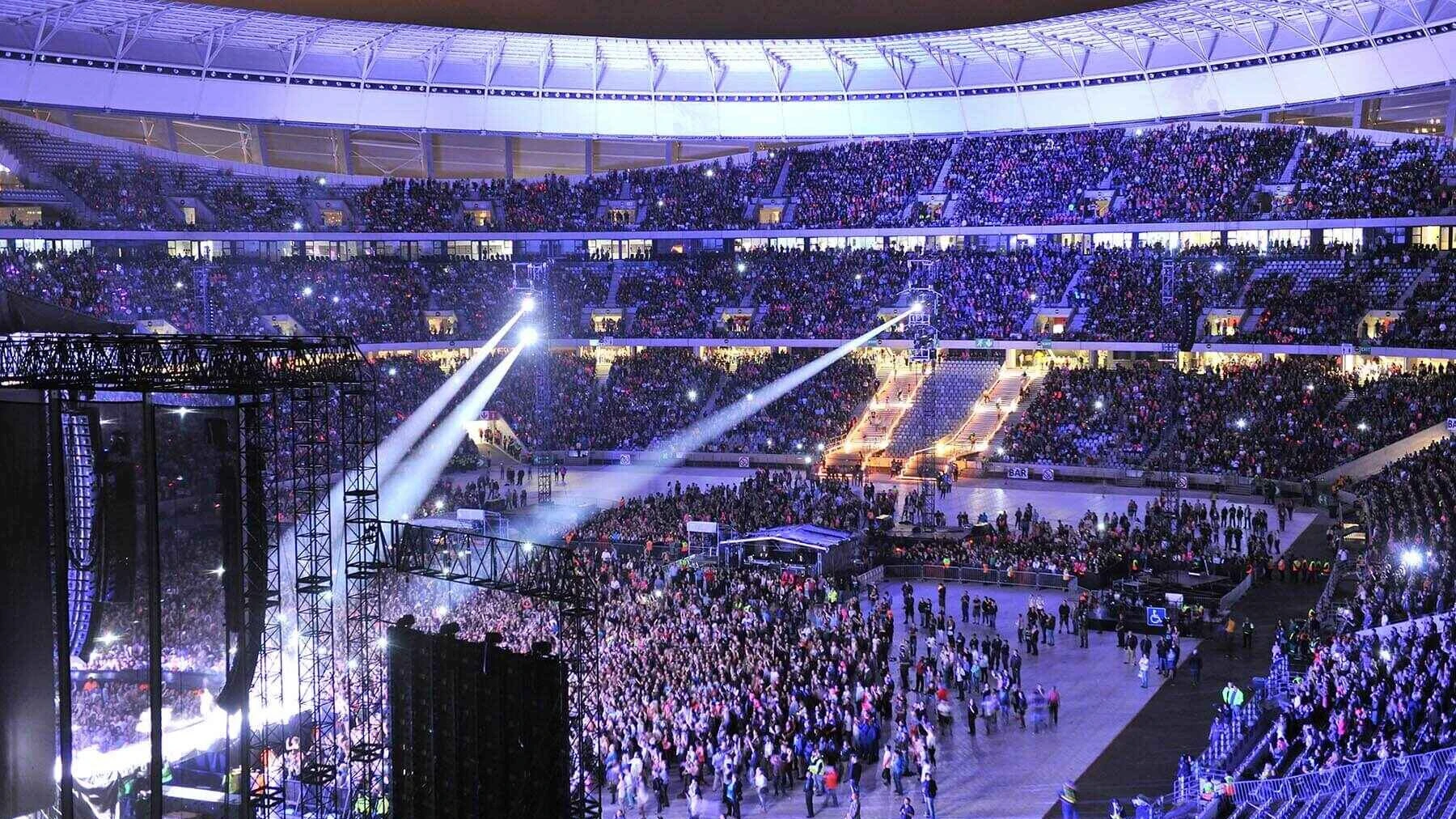
The Cape Town Stadium has hosted several international events, including the 2010 FIFA World Cup. The stadium was used for eight games during the World Cup, including a quarter-final match between Argentina and Germany. The stadium has also hosted several music concerts, including performances by Coldplay, Rihanna, Justin Bieber and many more. It has also been a venue for rugby matches, cricket matches, other sporting events, corporate events and conferences.
Stadium Features 🪑


The Cape Town Stadium’s capacity is 55,000 seats. The seating is arranged in a bowl shape, which provides excellent views of the playing field from every seat. The seats are made of high-quality materials, and the stadium is equipped with state-of-the-art sound systems, making it an excellent venue for concerts and other events.
The roof of the stadium is a unique feature. The roof is made of Teflon-coated fibreglass and covers the entire seating area. The roof is supported by a series of cables, which allow it to remain transparent while providing shade and protection from the rain. The roof also allows natural light to enter the stadium, providing a bright and vibrant atmosphere.
The playing field of the Cape Town Stadium is made of natural grass. The pitch is well-maintained, and the stadium has a state-of-the-art irrigation system, which allows the grass to remain in excellent condition even in dry weather conditions. The stadium also has a hybrid grass system, which combines natural grass with synthetic fibres to create a more durable and resilient playing surface.
Facilities and Parking at the Stadium 🚘
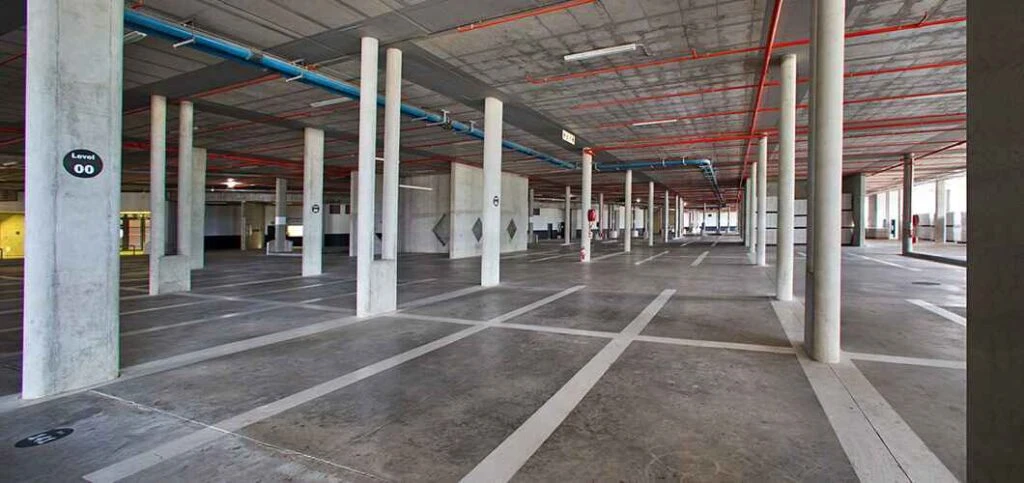
The Cape Town Stadium is equipped with several state-of-the-art facilities, including restaurants, VIP lounges, and a retail section. The restaurants offer a variety of cuisine options, including local and international dishes. The VIP lounges are equipped with comfortable seating, and the retail section offers a range of merchandise and souvenirs.
The Cape Town Stadium is accessible to people with disabilities. The stadium has several wheelchair-accessible seating areas and has accessible restrooms and elevators. The stadium also has designated parking areas for people with disabilities.
The DHL Stadium is located in the suburb of Green Point, which is easily accessible by public transportation. The stadium is also located near several major highways, making it easy to access by car. There are also several parking areas for those who prefer to drive. During major events, additional transportation options are usually provided to ensure easy access to the stadium.
Stadium Tours 📸
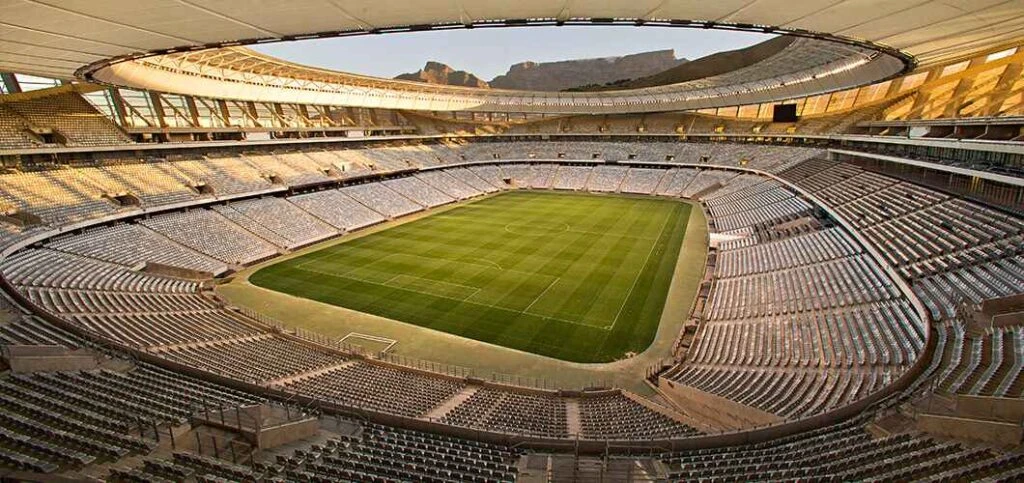
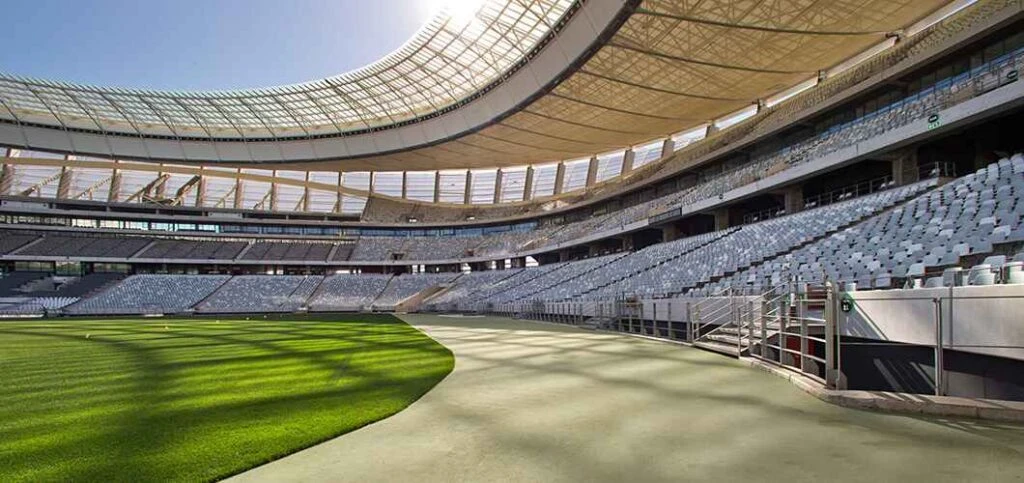
Go on an exciting tour of DHL Stadium available for a fee, provide an opportunity to explore all the aspects of the venue. Note that express tours are limited to event build-up and breakdown days, and registered tour guides enjoy complimentary access. Be mindful of the cancellation policy, with a 50% charge for cancellations within 5 days and a 25% fee for earlier cancellations. Make sure to provide proof of group classification if applicable. The DHL Stadium tour promises an exciting experience, whether you’re a sports lover or simply curious about this major attraction.
Hosting an Event at DHL Stadium 🎉


Consider DHL Stadium as the ideal venue for hosting your next event, offering a vast 340,000 square feet of the best spaces. Whether it’s a lively party, elegant ball, formal dinner, open-air concert, or corporate and sporting event, the stadium provides a perfect venue. The Stadium Bowl, capable of seating up to 55,000 fans, has witnessed some of the most thrilling live concerts and shows around, making it a unique choice for arena-type events.
With options ranging from well-equipped Conference Rooms and Breakaway Spaces to the social atmosphere of the Mixing Zone and the pleasantries of the Presidential Suite, DHL Stadium caters to a variety of corporate and private events. The venue is open to film and photo shoots, offering multiple settings to meet both corporate and private requirements. Explore the possibilities of hosting your event at DHL Stadium, where the facilities and features create a memorable and adaptable space for a wide range of occasions.
Getting to DHL Stadium 📌
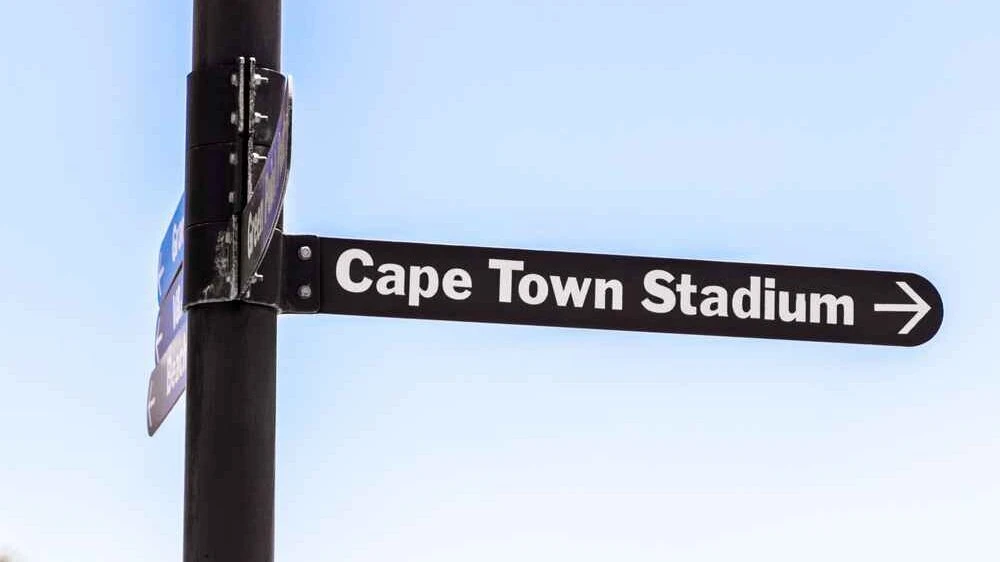
Getting to DHL Stadium is easy, considering it is conveniently located within 3km of the city centre, V&A Waterfront, and Green Point. Whether it’s game day or a special event, transportation options abound. The MyCiti Bus runs regularly from Cape Town Civic Centre to the Stadium bus stop, while drivers can park in designated City centre facilities and utilize the MyCiTi bus shuttle or Fan Walk. For air travellers, the MyCiTi bus offers a regular shuttle from Cape Town International Airport, connecting to the stadium via the Civic Centre.
🚘 If You Are Looking For Alternative Transport Options Click Here! 🚗
Cape Town Stadium is a state-of-the-art multipurpose stadium located in the city of Cape Town, South Africa. It has hosted several international events, including the 2010 FIFA World Cup, and has become a popular destination for tourists visiting the area. The stadium’s unique design and state-of-the-art facilities have made it an excellent venue for concerts, sporting events, and corporate events. The stadium’s commitment to sustainability and accessibility has also made it an important landmark for the local community.
Website: https://dhlstadium.co.za/
Address: Fritz Sonnenberg Rd, Green Point, Cape Town, 8051
Phone Number: 021 417 0120
FAQ
- Q – What is the architectural design of Cape Town Stadium?
A – Cape Town Stadium features a unique design inspired by the shape of an African calabash or cooking pot. It has a distinctive curved roof that resembles the shape of the calabash, giving the stadium its iconic look. - Q – Is Cape Town Stadium used for sports other than football and rugby?
A – Yes, besides hosting football and rugby matches, Cape Town Stadium is a versatile venue that has been used for various other sports, such as cricket, athletics, and even motorsports. - Q – Does Cape Town Stadium offer facilities for people with disabilities?
A – Yes, Cape Town Stadium is designed to accommodate individuals with disabilities. It provides accessible seating areas, ramps, and other amenities to ensure inclusivity and a comfortable experience for all visitors. - Q – Can Cape Town Stadium be hired for private events or functions?
A – Yes, Cape Town Stadium offers its facilities for private events and functions. Whether it’s a corporate conference, exhibition, or a special celebration, the stadium can be rented for a range of occasions, providing a unique and impressive setting. - Q – What are some notable landmarks or attractions near Cape Town Stadium?
A – Cape Town Stadium is surrounded by several popular landmarks and attractions. The iconic Table Mountain is within proximity, offering breathtaking views of the city. Additionally, the V&A Waterfront, with its bustling shopping centres, restaurants, and entertainment options, is a short distance away, making it a convenient and vibrant destination for visitors.
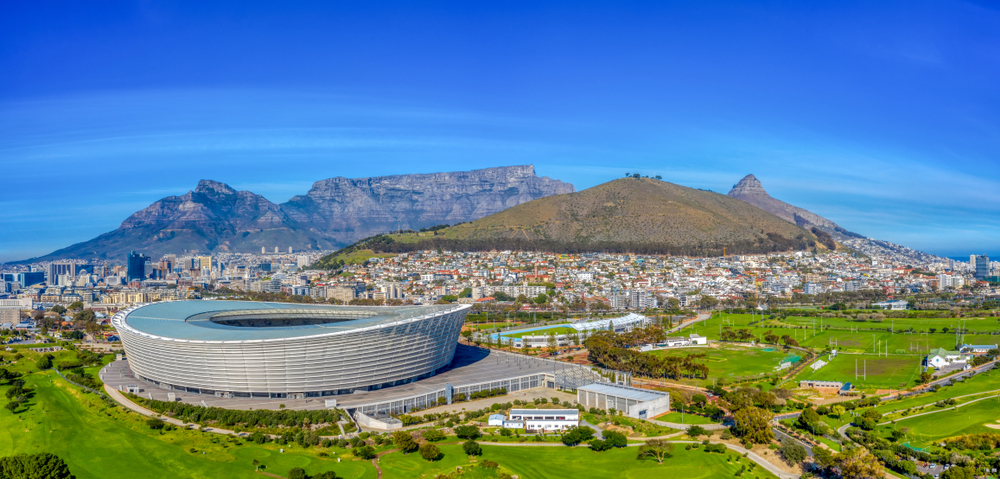






Hi, You say that the roof is one of the stadiums ‘most unique ‘features.
It either is or it is not unique.
Thanks Brent. I will point this out to the editor. 😊